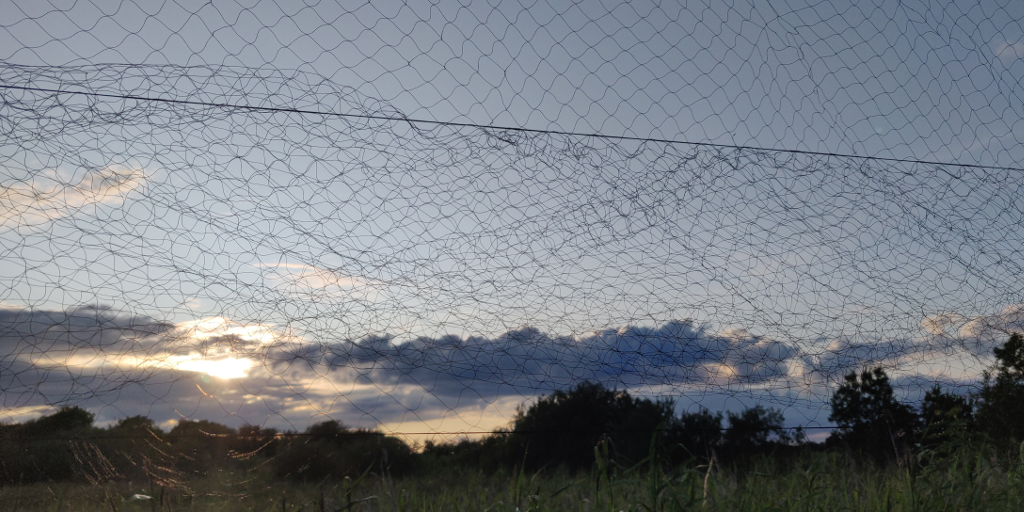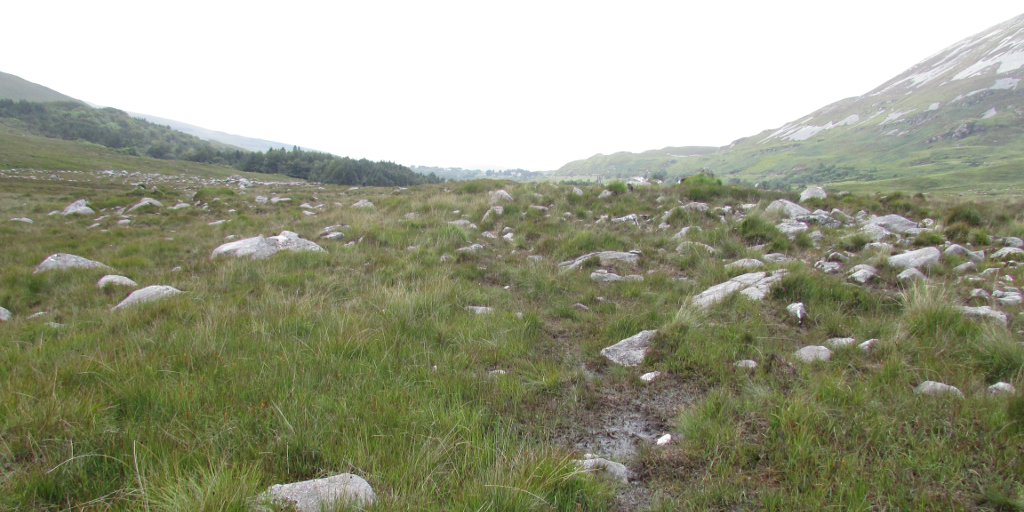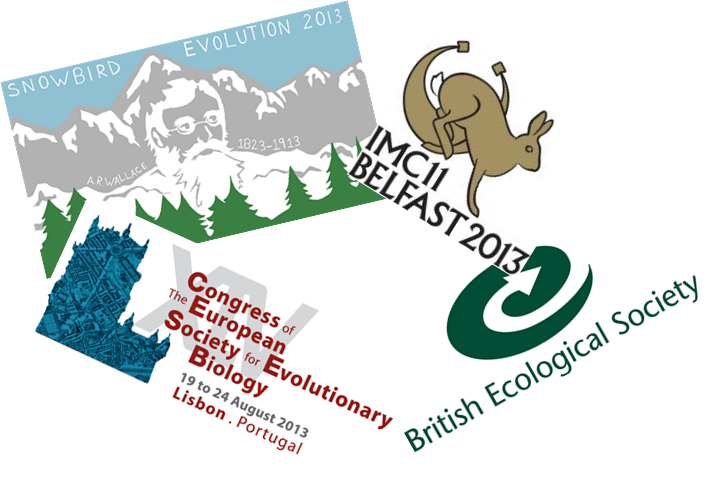This short short story was first published in the March 2020 issue of The Niche, the magazine of the British Ecological Society, as part of their “Horizons” ecofiction series. “Horizons” aims to use fiction to help visualise a better future aided by ecological science.
Continue reading “Ecofiction: The Journey”Ecofiction: The Bog Down in the Valley
This short story was first published in the March 2019 issue of The Niche, the magazine of the British Ecological Society, as part of their “Horizons” ecofiction series. “Horizons” aims to use fiction to help visualise a better future aided by ecological science.
Continue reading “Ecofiction: The Bog Down in the Valley”Conference season madness!
Over the last month or so you’ll probably have noticed that a lot of posts on EcoEvo@TCD are essentially “what I did on my summer holidays” essays. Luckily, I think most of us did quite a lot of interesting and scientifically relevant things! My summer this year seemed to be full of conferences, so I thought I’d write a quick post describing them, and what I liked or disliked. This post was inspired by Britt Koskella’s excellent post on the same subject; although Britt attended NINE conferences this summer so is clearly completely insane.
Over the summer I attended four international conferences: Evolution 2013 in Utah, BES Macroecology in Sheffield, International Mammalogical Congress in Belfast, and ESEB 2013 in Lisbon. This involved 15 days of conference going, four plenaries, one prize talk, eight invited talks, 103 standard talks, and 56 lightning talks. So in total I spent about 40 hours in talks, not including questions or people running over time…
Evolution 2013, attended by around 1500 people, was in late June, and was probably my favourite conference academically. I’ve been going to Evolution since 2006 and have only missed three meetings in that time, so it’s the conference I know the most people at, and is most closely aligned with my interests in macroevolution. Most of the top names in the field were there, and I saw some excellent talks. I particularly enjoyed the plenaries. Richard Lenski’s plenary reviewed 25 years of experimental evolution using E.coli in his lab, Dolph Schluter’s discussed ecological opportunity as a factor in increasing rates of diversification, and Jack Sullivan talked about advances in systematics since the last meeting at Snowbird (although this talk was mainly notable for the “dirty chipmunk sex” and pictures of ground squirrel bacula – look them up on Google!). The plenaries at Evolution are generally entertaining and thought provoking, and in recent years there seems to be a trend to talk about something controversial. This is great and I think that’s how plenaries should be! The other big highlight was the location. It was up in the ski resort of Snowbird at 8,000 feet, so we were surrounded by snowy mountains, cheeky ground squirrels, marmots and even the occasional moose. On the flip side, this year’s Evolution was smaller than usual (or felt smaller) because fewer European scientists made the trip. With ESEB (the European equivalent of Evolution) and INTECOL happening in August many people decided to attend these instead. This made it feel a bit more US-centric than usual.
My second conference of the summer happened two days after I got back from Utah and was in the less exciting location of Sheffield (sorry Sheffield, you just don’t have enough moose). This was a much smaller conference with only 60 attendees. The great thing about this was that I was able to briefly chat to almost everyone at the conference. In addition, many of the attendees are old friends of mine so it was lovely to catch up with them. This was a British Ecological Society special interest group meeting on Macroecology (if you’re UK or Ireland based I’d definitely recommend checking out any of the BES special interest groups, they’re friendly and full of enthusiastic people!). We spent the two day meeting listening to five minute talks from anyone who wanted to present, then had panel discussions after the talks which worked really well. We also had some “break out” groups to discuss the future of the field. The most interesting of these for me was – “If we got £20 million from the government today what would we spend it on?” Amusingly this mostly boiled down to people wanting more, and better quality, data! The highlight of this meeting for most people was Ethan White’s excellent plenary. I’m sure it would have been mine too but I had issues with my train and ended up being two hours late and missing his talk (sorry Ethan!). The train also “ate my homework” (I had to stand all the way on the later train so didn’t get chance to write my talk). I promise to do better next year!
My third conference was the 11th International Mammalogical Congress in Belfast. Full disclosure – I’m not really a mammalogist (I work on mammals, but just because the data is good) so this was an odd one for me. But Belfast is only two hours away on the train and my PhD students thought it would be fun to present their posters more than once. Organisationally this was a strange conference (no offence intended). The talk program wasn’t online so there was a lot of frantic flipping through the booklet to try and find talks. There had also been a change to the program that removed the second poster session, meaning that one of my students turned up a day late to present his poster. However, I saw some really interesting talks, particularly in the disease ecology symposium. I also saw the worst set of PowerPoint slides I’ve seen in a long time – lemon yellow background, brown text with shadows, no pictures and text completely covering each slide! Yeurgh!
My final conference of the summer was ESEB 2013. This was a lot of fun and I saw some excellent talks. I also discovered that I don’t understand population genetics. At all. I think by this point I was “conferenced-out” so it was a difficult conference for me. Also because of the overlap between INTECOL and ESEB, a lot of people I would normally catch up with there were at INTECOL instead. This was particularly reflected by the paucity of macroevolution talks and attendees with macroevolutionary interests. In fact, our delegation (myself and five students) from TCD was probably the biggest group of macro-people there! This meant there were a few days where I found it hard to find many relevant talks. I still attended some very interesting talks, but I also spent a lot of time feeling very stupid because I attended lots of talks I didn’t understand at all! The highlight of this conference for me (partly due to my macroevolutionary interests, partly due to my love of pretty slides) was Rich FitzJohn’s JMS prize talk. The content was good but the slides (all made in R apparently!) were gorgeous. I also really enjoyed Hannah Kokko’s talk where she was able to describe quite complex maths in a really accessible way. The other, less academic, highlight was tweeting a picture of some Superbock – a local beer – and the beer company replying, thus ruining the conference twitter feed by filling it with pictures of beer! Oops!
My conclusions:
1)Four conferences in a summer was too many conferences! Each was fun in it’s own way, but conferences are exhausting both mentally and physically (often talks start early and social events end late) so I ended up feeling totally wiped out for weeks afterwards. Next year I think I’ll focus on two or three at most.
2)Feeling stupid at a conference is inevitable at some point, but it doesn’t mean that you are stupid. When I was a PhD student I felt stupid all the time, but as I’ve become more seasoned I’ve realized that often it’s because the speaker isn’t explaining themselves properly, or because it’s so far out of my field that I don’t know the background. If you don’t understand, try and discuss it with others afterwards. We’ve been doing this a lot after seminars recently and it’s really helped my understanding of the trickier bits.
3)Big conferences are great for meeting lots of people you know already, but terrible for making new connections. From now on I’ll try and go to one big conference a year to catch up with old friends, and one small conference where I can meet new people.
4)Going to four conferences made me realize how cliquey a lot of evolutionary biology is. Many of the people speaking in symposia had also spoken at symposia in previous years. In some cases people spoke in symposia at multiple conferences (and gave almost the same talks). This is inevitable to some extent and shows the importance of having a good network within your subject. Next year however, instead of moaning I’m going to organize my own symposium and try to invite some people I don’t know, plus women and early career researchers. I’m also going to make more of an effort to attend small conferences where I don’t know lots of people.
5)Twitter is an awesome way to improve your conference experience (see my other blog posts on this). But don’t tweet too many pictures of Superbock…
Author: Natalie Cooper, ncooper[at]tcd.ie, @nhcooper123




